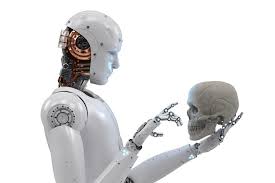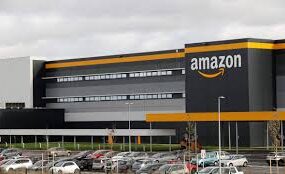

Introduction:
In the grand tapestry of human history, few innovations have sparked as much fascination and intrigue as the creation of robots. From the realms of science fiction to the concrete landscapes of modern industry, robots have evolved from fantastical musings to tangible entities shaping the world around us. As we stand on the threshold of a new era defined by automation and artificial intelligence, understanding the essence and significance of robots becomes paramount.
Robots in Human Society:
In the vast landscape of technological advancement, few innovations have captured the imagination and attention of society quite like robots. From science fiction dreams to real-world applications, these mechanical marvels have evolved from mere figments of imagination to indispensable assets in various facets of human life. As we stand on the cusp of a new era defined by automation and artificial intelligence, it’s imperative to delve deeper into the significance of robots and their impact on our society.
Robots have transcended:
Robots have transcended their initial portrayal as mere tools in factories and assembly lines. Today, they inhabit diverse roles, from assisting in intricate surgical procedures to exploring the depths of outer space. With advancements in robotics, they are increasingly becoming integral parts of our daily lives, revolutionizing industries such as healthcare, transportation, agriculture, and beyond.
Robots lies in their ability:
One of the most profound impacts of robots lies in their ability to augment human capabilities. In industries like manufacturing, robots work alongside human counterparts, streamlining processes, enhancing efficiency, and improving overall productivity. Moreover, in hazardous environments where human presence poses risks, such as deep-sea exploration or disaster response, robots serve as invaluable assets, mitigating dangers.
Robots into society also raises:
However, the integration of robots into society also raises important questions regarding ethics, employment, and the nature of human interaction. Concerns about job displacement due to automation loom large, prompting discussions about the need for retraining and upskilling the workforce to adapt to the changing landscape. Additionally, ethical considerations surrounding the autonomy
Robots offer personalized care:
Despite these challenges, the potential benefits of embracing robotics are undeniable. In healthcare, robots offer personalized care and assistance to patients, from robotic exoskeletons aiding individuals with mobility impairments to companion robots providing companionship and support to the elderly. In agriculture, robotic systems optimize crop management and harvesting, contributing to food security and sustainable practices.
Robots into our society:
As we navigate the complexities of integrating robots into our society, it’s essential to approach the process with a balanced perspective, acknowledging both the opportunities and challenges they present. Collaboration between scientists, engineers, policymakers, and ethicists is crucial to ensure that robotics development aligns with human values and fosters inclusivity and equity.
conclusion:
robots are not merely machines; they are reflections of our ingenuity, creativity, and aspirations for a better future. By harnessing their capabilities responsibly and ethically, we can unlock new frontiers of innovation and progress, enriching our lives and shaping a society where humans and robots coexist harmoniously.















